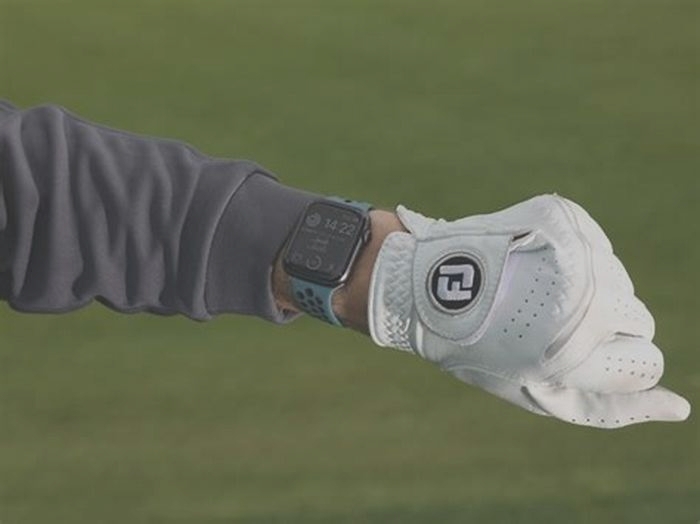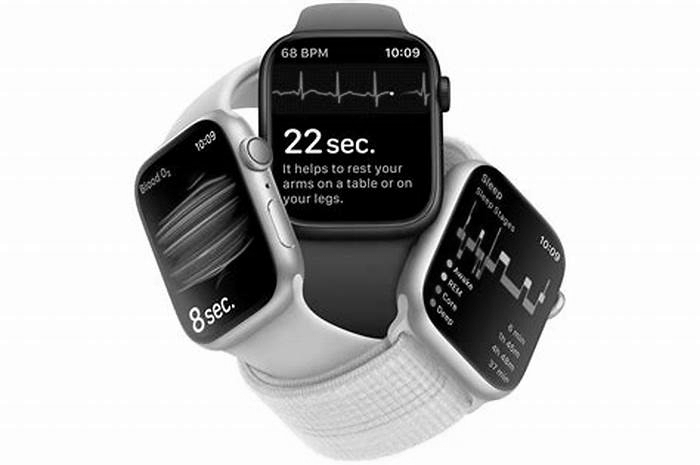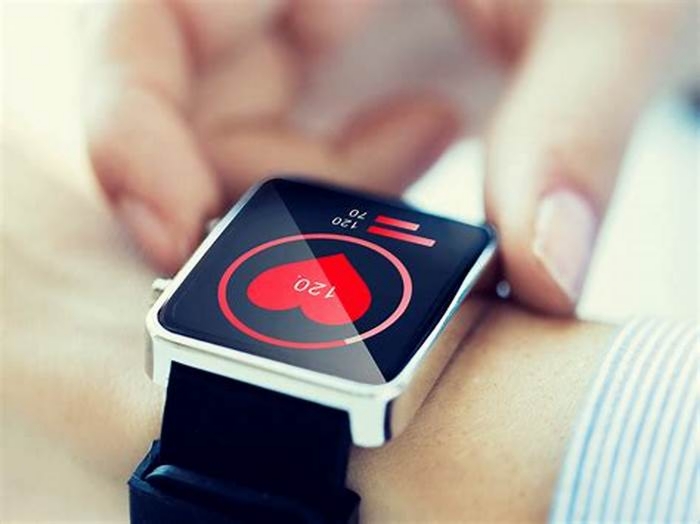How Smartwatches Use AI to Improve Health and Fitness Tracking
What to Expect From Smartwatches in 2024: More AI, New Health Features and More
Smartwatches already provide more health and wellness statistics than most people probably need, from telling you how well you slept last night to whether your body temperature fluctuated. But in 2024, tech giants like Apple, Samsung and Google are expected to take health tracking even further.
A combination of new metrics and AI-powered tools for parsing wellness data could make smartwatches more sophisticated as health assistants. Apple, for example, is reportedly developing Apple Watch features for monitoring conditions like sleep apnea and high blood pressure, while Google's Fitbit is experimenting with using generative AI to answer questions about your athletic performance.
Read more: Best Smartwatches for 2024
AI isn't new to smartwatches, but the technology is expected to show up in a major way this year thanks to rapid advancements in generative AI, which has become the tech industry's new obsession. Generative AI, the flavor of AI that powers ChatGPT, can create content or responses when prompted after being trained on data. The technology made its way to search engines, productivity tools and smartphones in 2023, and it wouldn't be surprising to see it play a bigger role in smartwatches next.
Here's how smartwatches are expected to change in 2024 based on reports, leaks and the general product direction and strategy we've seen from companies like Apple, Google and Samsung. In addition to more AI and new wellness features, we also expect to see improved designs and fresh competition from new health wearables that fit around your finger.
More AI, especially for health tracking
The Pixel Watch 2.
James Martin/CNETExpect smartwatches to get an AI boost in 2024 across both Android and iOS. Google-owned Fitbit has been the most vocal about its plans for bringing generative AI to its health trackers, which now includes the Pixel Watch.
Fitbit is launching a new program called Fitbit Labsthis year, which will use generative AI to answer questions and provide more context about your activity data. The Labs feature, for example, would allow you to ask the Fitbit app why your run felt more difficult one day than another. The company also hopes it can use generative AI to help people set realistic fitness goals based on their individual performance, Ajay Surie, group product manager at Google, said to CNET.
An example of the type of information Fitbit Labs could provide, shown during Google's October event.
Screenshot/CNETApple is already using AI to assist with health tracking, as evidenced by Siri's ability to answer health-related questions on the Apple Watch Series 9 and Ultra 2. But according to a report from Bloomberg, Apple is also working on a digital health coach that will leverage Apple Watch data to provide advice and insights. It's unclear when this health coach would launch, but CEO Tim Cook hinted that more AI-related announcements are to come in 2024.
"As we look ahead, we will continue to invest in these and other technologies that will shape the future," Cook recently said during Apple's fiscal first quarter earnings call in reference to the Vision Pro headset, according to a transcript published on the finance website Seeking Alpha. "That includes artificial intelligence where we continue to spend a tremendous amount of time and effort, and we're excited to share the details of our ongoing work in that space later this year."
The Apple Watch Series 9.
Richard Peterson/CNETSamsung drew attention to its AI efforts in January with the launch of its Galaxy S24 lineup, which are the company's first phones to support Galaxy AI. So far, these new Galaxy AI features span everything from photo editing to summarizing notes and language translation.
We don't know exactly what Samsung's AI-focused direction means for future Galaxy Watches just yet. But comments from Samsung executives suggest the company is indeed thinking about bringing more AI features to its smartwatch line.
Read more:Apple Watch X: Biggest Changes I Want to See on Apple's Next Watch
Won-Joon Choi, executive vice president and head of the research and development office for Samsung's mobile experience business, said the company is looking at how to apply AI to wearables when talking to CNET in January. And when asked whether Samsung is considering creating some type of digital assistant for helping users navigate health data, Samsung's Hon Pak said it's something the company has thought about.
"We think the concept of a digital system that helps you to navigate and understand the context and navigate them to solutions are going to be necessary," Pak, vice president and head of the digital health team for the mobile experience business at Samsung Electronics, said in a previous CNET interview. "And what form factor that's going to be is to be determined. And it may vary based on person to person, right? Some people just probably want audio; some people want a video on the TV."
New health metrics and insights
The underside of the Samsung Galaxy Watch 6
James Martin/CNETSmartwatches are already stuffed with sensors for measuring bodily signals such as heart rate, temperature and blood oxygen. If rumors and reports are to be believed, tech companies will find new ways to put those sensors to use in 2024 by providing more statistics and takeaways.
Apple is said to be adding tools for keeping tabs on blood pressure and checking for sleep apnea in its next Apple Watch, according to Bloomberg. The new feature would be able to show when a person's blood pressure may be elevated, says the report, which also notes that Apple is working on a version with more precise readings.
Samsung is also expanding its health-tracking capabilities -- the Galaxy Watchjust got FDA approval for sleep-apnea detection, for one thing. But the tech giant also teased that more updates are coming later this year in the form of two new features: My Vitality Score and Booster Cards. The first is a bit like the readiness scores we've seen from Oura, Garmin and Google's Fitbit; it evaluates your physical and mental state based on factors like activity, sleep, resting heart rate and heart rate variability. Booster Cards, meanwhile, are tidbits in the Samsung Health app that are meant to provide more context around your health readings. Companies like Oura and Garmin already offer similar pieces of advice.
One of Google's major long-term Fitbit and Pixel Watch product goals is to make it easier to make lifestyle changes based on data from your smartwatch, according to Surie. Although it's unclear how, when or if that ambition will surface in new Fitbit metrics and insights, it provides some context on the company's direction for future features. Surie spoke broadly about how the company views this approach when it comes to stress tracking in particular.
"What I hope we'll be able to do is help you with your day to day if we know your stress level," he said. "Whether it's doing a workout, or going to an important meeting, we hope that Fitbit can be the place you come to get the right preparation, and we can give you the guidance to be prepared for those activities."
Design improvements
Apple significantly changed the Apple Watch's design in 2022 with the first Apple Watch Ultra, which has a notably larger screen and more durable design than Apple's mainline watches.
James Martin/CNETDesign isn't always the most important characteristic of a new tech product. But smartwatches are the exception given their placement on your wrist. Based on reports that have surfaced so far, it sounds like new smartwatches in 2024 will see some notable steps forward in the style department.
Apple is said to be revamping the Apple Watch for its tenth anniversary with a thinner design and new magnetic bands, according to Bloomberg. Google, meanwhile, is said to be working on two size options for the Pixel Watch 3, says 9to5Google, which would mark an upgrade from the current single choice available for the Pixel Watch 2.
More competition from smart rings
Samsung teased its upcoming Galaxy Ring at its Unpacked event in January.
Screenshot/CNETSmart rings have existed for years, but they're in the spotlight in 2024 thanks to Samsung's recently announced Galaxy Ring and other similar rings shown at CES 2024. While smart rings can't replicate most of the functionality of your smartwatch, they might be a tempting choice for those interested in health tracking that want a simpler, more minimalist alternative.
"The idea behind such rings is not so much about being cheaper than smartwatches, but instead being a much smaller and discrete device for use cases like sleep tracking," Bryan Ma, VP of devices research at International Data Corporation, said to my colleague David Lumb.
That means smartwatch makers may have to work harder to appeal to fitness enthusiasts who aren't interested in wearing a second screen on their wrist. It reminds me of early fitness bands from a decade ago like the Jawbone Up and Misfit Shine, which were created to put simple, stylish and screenless health trackers on your wrist.
Smartwatches, like smartphones, tend to take incremental steps forward year-over-year, usually gaining new sensors, design tweaks and fresh processors. That's likely to be the case again in 2024, although the steps companies like Apple, Samsung and Google take to further embed AI into their wearables could set the stage for bigger changes down the line.
Editors' note: CNET is using an AI engine to help create some stories. For more, seethis post.
Galaxy Watch 6 and Galaxy Watch 6 Classic Gallery: Details Up Close
See all photosThe Best Fitness Trackers and Watches for Everyone
Unlike last years Galaxy Watch5, this years Watch6 Classic brings back the fabulous, clicky, rotating bezel (7/10, WIRED Recommends). Its fun and tactile and not a feature that youll find on many other smartwatches and fitness trackers. Other than that, it doesnt look or feel too terribly different from the Watch5, which is a good thing. The Watch6 Classic comes in a 43- or 47-mm case, and the standard Watch6, which doesn't have the mechanical rotating bezel, is available in 40- and 44-mm cases.
The Watch6 runs Wear OS, which means you have access to Google Maps and Google Assistant, and it also has access to Samsungs fairly robust health features. In addition to the usual suite of SpO2 measurements, auto-workout detection, and sleep tracking, it now has FDA-cleared irregular heart rate notifications and blood pressure monitoring (the latter is not available in the US nor cleared by the FDA). Some features are also restricted to users who pair the watch with Samsung phones, rather than other Android phones, like the ECG. If you prioritize design, you might want to stick with a Pixel Watch; if you dont have a Samsung phone, you might want to stick to a Garmin. All that said, Its a fairly capable watch with a fun party trick.
Alternative: Stick to a Garmin, you say? Garmin's entry in this category is the Venu 3 ($460), which has a stainless steel bezel, Corning Gorilla Glass for the lens, and two amazing weeks for battery life. It has Garmin's multi-band satellite capabilities for workout tracking, along with Garmin's killer proprietary health software, which now includes a new sleep coach with nap detection, along with Morning Report and Body Battery. However, it is pricey, does not have temperature sensing, and the onboard mic and speakers sound pretty terrible.
The best smartwatches for keeping track of your health
Thanks to the advances in wearable technology, smartwatches with capable health monitoring features are more accessible than ever. More devices are packing specialized sensors to keep track of your heart, blood pressure, and more. But which are the best smartwatches for health monitoring and tracking your wellness? We detail our recommendations below.
Buying the right smartwatch to monitor your health
Plenty of modern smartwatches pack almost every health monitoring feature imaginable, but not every device provides the specific focus some people need. For instance, while blood oxygen sensors are near ubiquitous, not every smartwatch packs a reliable medical-grade sensor, and some devices are better at tracking specific factors than others.
With this in mind, youll need to identify precisely what facet of your health you want to track. If youre concerned about your heart health, consider a device with an ECG and a reliable heart rate monitor. What about stress and energy management? Consider a device that either has a dedicated stress sensor or takes heart rate variability into account.
Whatever youre concerned or curious about, youll find a recommendation that fulfills your needs below.
The best smartwatches for health monitoring
- Apple Watch Series 9: This is the best smartwatch for menstrual cycle tracking thanks to its new skin temperature sensor. It also provides fertility estimates.
- Fitbit Sense 2: The Fitbit Sense 2 is the best smartwatch for stress management and general sleep monitoring thanks to its new cEDA sensor and Fitbits ever-reliable sleep-tracking smarts.
- Samsung Galaxy Watch 6: This is the best smartwatch for body composition and blood pressure monitoring. Although the Galaxy Watch 4 and 5 also pack both features, the Galaxy Watch 6 is the overall better device.
- Withings ScanWatch: The ScanWatch is the best watch for monitoring heart health, blood oxygen, and sleep apnea. Although a hybrid watch, the ScanWatch packs medical-grade ECG and SpO2 sensors.
- Garmin Venu 3: The Garmin Venu 3 is the best smartwatch for monitoring energy levels. Most Garmin watches feature the Body Battery functionality, but the Venu 3 includes useful morning and evening recovery and activity guidance tools Daily Summary and Morning Report.
Apple Watch Series 9: The best smartwatch for menstrual cycle tracking
Apple Watch Series 9
Apple Watch Series 9
Powerful processor Upgraded display with 2000 nit brightness Gesture controls and Siri features
Apple's most convenient smartwatch
The new S9 chip makes the Apple Watch Series 9 the most capable, and battery friendly Apple watch to date. Enjoy improved security, improved functionality in low-connectivity situations, and improved health tracking. Introducing new Double-Tap gesture.
The Apple Watch Series 9 isnt the first Apple Watch to debut with a temperature sensor that honor goes to its predecessor but it is a more complete offering beyond its health tracking kit. Nevertheless, the skin temperature sensor informs wearers body temperature changes, and this data is used to generate improved period predictions and retrospective ovulation estimates. The Apple Watch Series 9 is the best smartwatch you can buy if you want to track menstrual health.
In addition, the Apple Watch Series 9 retains an electrocardiogram (ECG) sensor, a reliable heart rate sensor, blood oxygen monitoring, and sleep tracking. Its also a great smartwatch, especially if youre entrenched in the Apple ecosystem. The wearable gains onboard Siri processing, which allows you to query any health stats on the fly, and a new gesture that lets you control the smartwatch with a double tap of the thumb and index fingers.
Notably, the Apple Watch Series 9 is the current subject of a lawsuit, and as a result, new models come with their blood oxygen monitoring feature disabled. This shouldnt affect its cycle tracking features, but its worth noting nonetheless.
The Apple Watch isnt for everyone, though. Those running Android smartphones cant benefit from the skin temperature sensor or improved menstrual tracking.
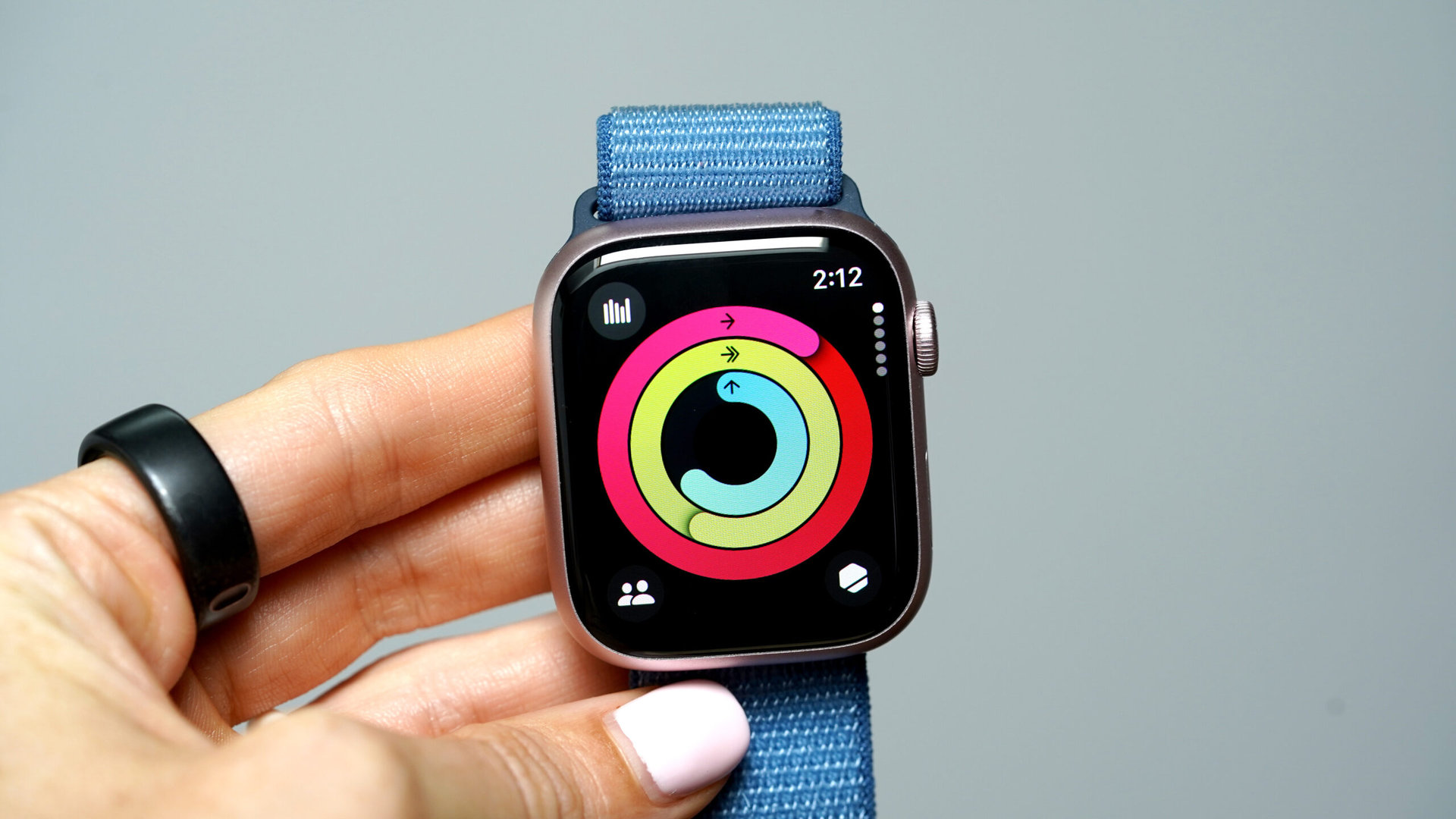
Kaitlyn Cimino / Android Authority
Pros
- Powerful new S9 chipset
- Brighter AMOLED display
- Expanded Find My Phone feature
- Onboard Siri query processing
- Excellent WatchOS 10 updates
Cons
- Key new features not available at launch
- Battery life still unimproved
Fitbit Sense 2: The best smartwatch for stress management and sleep monitoring
Fitbit Sense 2
Fitbit Sense 2
Thin, light, and comfortable Terrific battery life Fantastic sleep and stress tracking
The Fitbit smartwatch for advanced health tracking
The Fitbit Sense 2 packs an EDA/cEDA sensor, ECG readings, heart rate, SpO2, and skin temperature monitoring and a fantastic sleep tracking suite. In addition to this extensive list of health-focused tools, the device also features built-in GPS, Fitbit Pay, and support for on-wrist phone calls.
Speaking of Fitbit, the Sense 2 has plenty of tricks. In addition to the ECG sensor and skin temperature monitor, it now includes a continuous electrodermal activity (cEDA) sensor. This sensor records the changes in the skins electroconductivity due to the salts contained in sweat. These readings then inform Fitbits body response feature, which automatically gauges stress throughout the day. At the same time, the Stress Management Score provides a more understandable overview of a users stress levels. Finally, Fitbit bakes a mood tracker, making the Sense 2 a more intuitive reflection and relaxation smartwatch. When its time for bed, Fitbits detailed and useful sleep tracking steps up.
There are plenty of features (or lack thereof) to dislike about the Sense 2. Its a dumber smartwatch than its predecessor, lacking Google Assistant, Wi-Fi, and third-party app support. Some features also remain locked behind the Fitbit Premium paywall.
Of course, if you want a proper smartwatch with the Sense 2s health tracking kit and are willing to spend a little bit more, the Google Pixel Watch 2 ($349.99 at Amazon) is a worthy contender. Its a very capable smartwatch, with accurate health tracking and more features beyond the Sense 2. That said, it costs a fair bit more.
Notably, if youre specifically looking for a watch that detects potential sleep apnea symptoms, the Galaxy Watch series will gain that FDA-approved functionality later in 2024. Until this happens, Ill continue recommending the Sense 2 to sleep-conscious users.
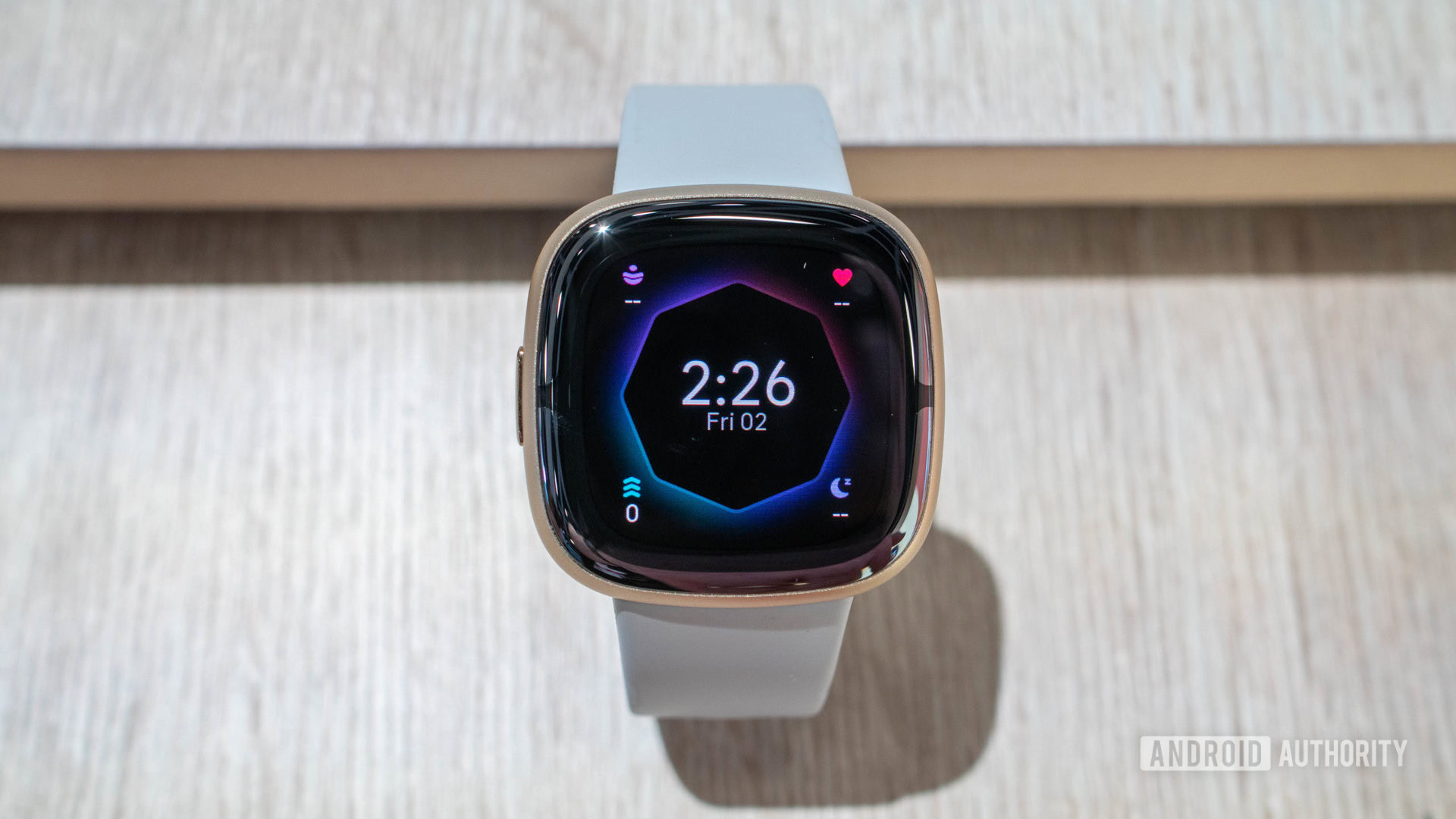
Kris Carlon / Android Authority
Fitbit Sense 2
Pros
- Thin, light, and comfortable
- Terrific battery life
- Bright AMOLED display
- Snappy performance
- Fantastic sleep and stress tracking
Cons
- Unreliable GPS tracking
- No Google Assistant support
- No third-party apps
- New Fitbit OS needs work
Samsung Galaxy Watch 6: The best smartwatch for body composition and blood pressure monitoring
Samsung Galaxy Watch 6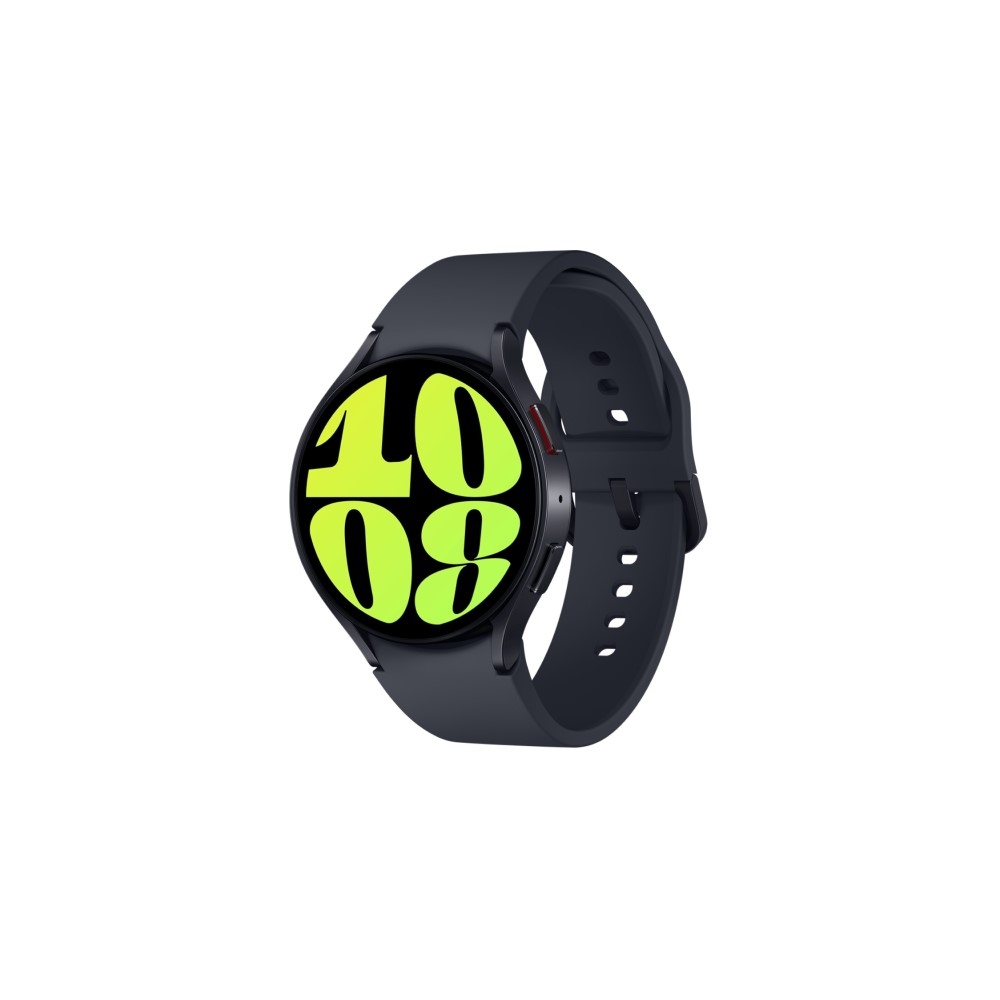
Samsung Galaxy Watch 6
Bigger, brighter AMOLED display Snappy Wear OS 4 software experience Sporty yet tasteful aesthetic
Bigger and better.
The Samsung Galaxy Watch 6 brings the best of Wear OS 4 and Samsung's smartwatch features to the table. A large display and full Samsung Wallet app make the Watch 6 a powerful standalone device, while integration with Samsung phones makes the Watch 6 a valuable part of your Galaxy ecosystem.
The Galaxy Watch 6 is the best Wear OS smartwatch you can buy right now, and its the only one on this list packing a bioelectric impedance analysis (BIA) sensor. Like the Series 9, the Galaxy Watch 6 wasnt the first in its line to pack the feature both the Galaxy Watch 5 ($162.57 at Amazon) and Galaxy Watch 4 ($199.99 at Samsung) can lay claim to it. However, the Galaxy Watch 6 is a more polished version of both devices overall.
The BIA sensor can measure the bodys composition using electric microcurrents, gauging skeletal mass, muscle mass, water retention, and fat mass. These details are beneficial for those looking to build muscle or lose weight.
Samsung has also carried over blood pressure monitoring smarts to the Galaxy Watch 6; however, its not without issues. Youll need a portable blood pressure cuff to calibrate the feature and recalibrate it regularly. The feature is also exclusive to Samsung smartphones.
The Galaxy Watch 6 is a great smartwatch with reliable sleep tracking, SpO2 monitoring, heart rate tracking, and an ECG. It also features several design improvements, from its larger display and smaller bezels to a slightly bigger battery.
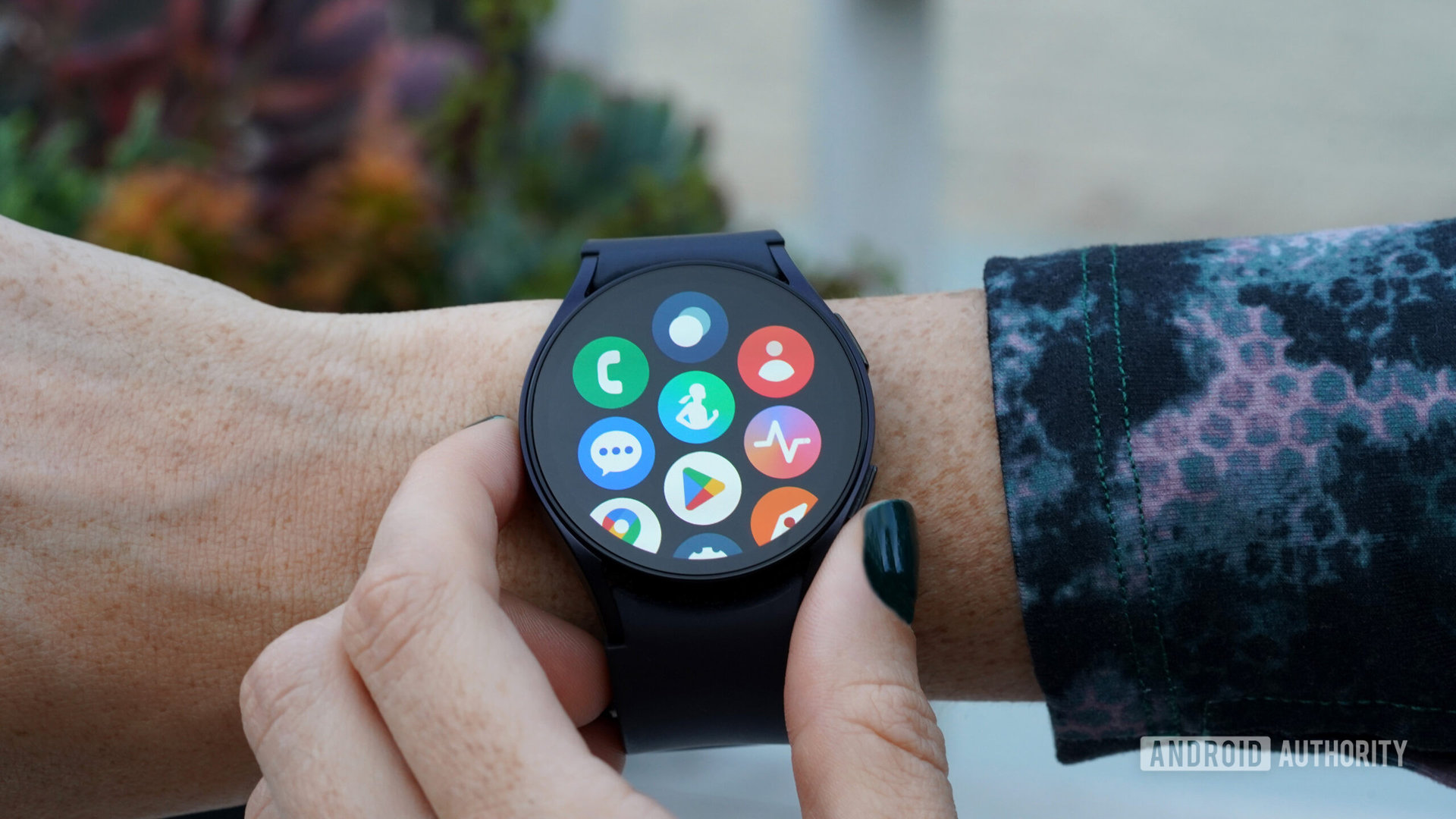
Kaitlyn Cimino / Android Authority
Samsung Galaxy Watch 6
Pros
- Bigger, brighter AMOLED display
- Snappy Wear OS 4 software experience
- Sporty yet tasteful aesthetic
- User-friendly quick-release strap
- $100 less than Watch 6 Classic
Cons
- Mostly minor improvements over Watch 5
- Unreliable touch bezel
- Inconsistent GPS and heart rate data
- Some features only available to Samsung phone users
Withings ScanWatch: The best watch for monitoring heart and breathing health
Withings ScanWatch
Withings ScanWatch
Premium, classy design Long-lasting battery Clinically validated health sensors
The Withings ScanWatch is more than just a "specialty" smartwatch
A health-focused hybrid device, the Withings Scanwatch features the aesthetic of an analog watch but packs undercover smarts for tracking your health and fitness, including fantastic sleep tracking. It is even clinically validated to detect early signs of AFib and sleep apnea.
The ScanWatch is a hybrid watch that packs far fewer smart features than the other devices on this list. However, it makes up for this with clinically validated sensors. This includes a medical-grade pulse oximeter to measure oxygen saturation levels in the blood. It also joins a medical-grade ECG sensor which can scan for signs of atrial fibrillation (AFib) or irregular heartbeats. ECG data can also be exported or printed to present to a medical professional if need be.
Theres also a nifty set of features for those who struggle to breathe. A Respiratory Scan feature considers heart rate, respiratory rate, and blood oxygen levels to help users understand if they experience potential breathing disturbances overnight. These details are also presented in graph form, informing users of any potential sleep apnea issues.
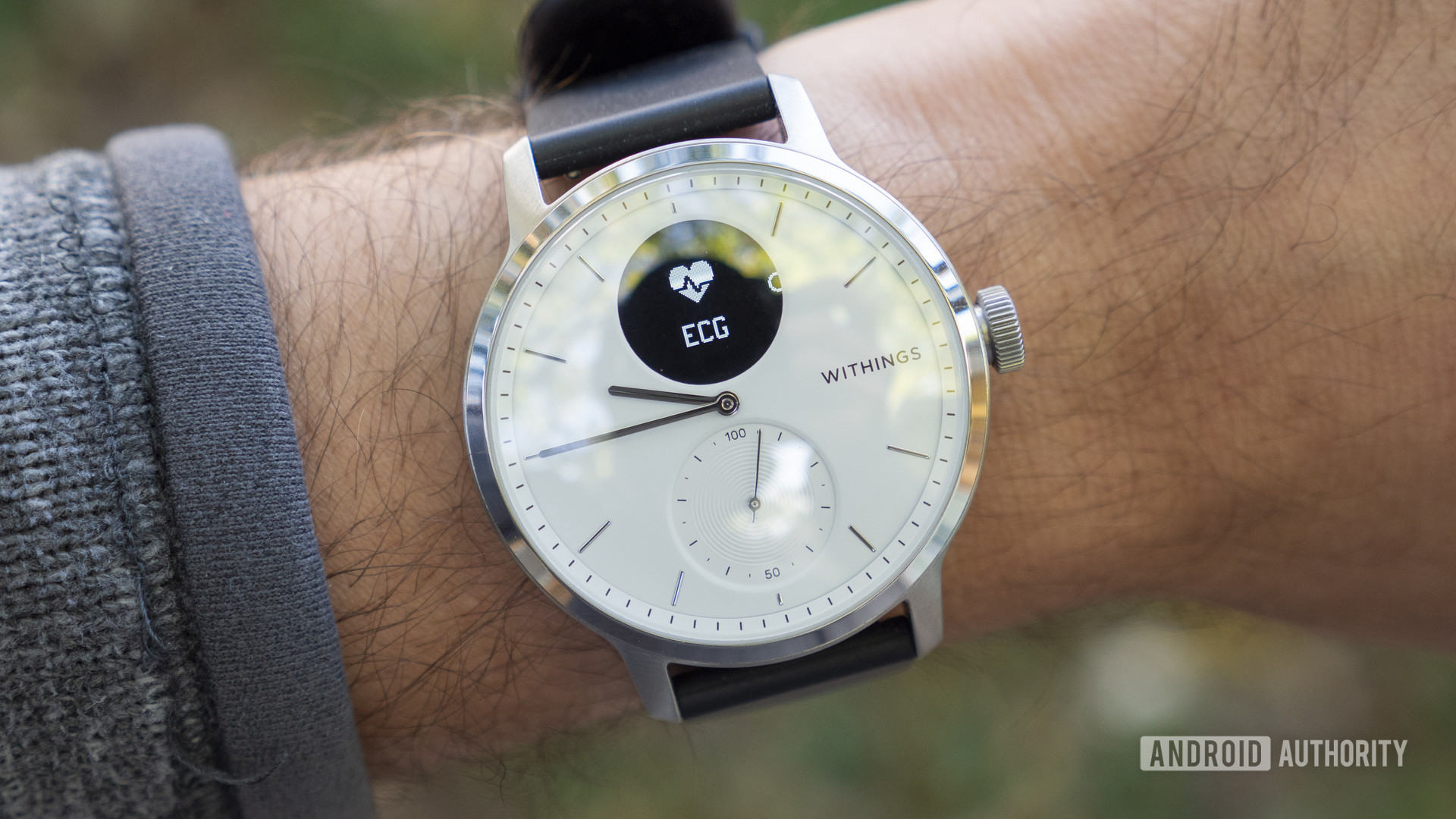
Jimmy Westenberg / Android Authority
Pros
- Premium, classy design
- Long-lasting battery
- Health Mate app is well-designed and easy to use
- Potentially lifesaving and easy-to-use ECG monitor
- Clinically validated AFib and breathing disturbance notifications
- Fantastic sleep tracking
Cons
- Small display limits smart features
- Few advanced fitness features or insights
Garmin Venu 3: The best smartwatch to monitor energy levels
Garmin Venu 3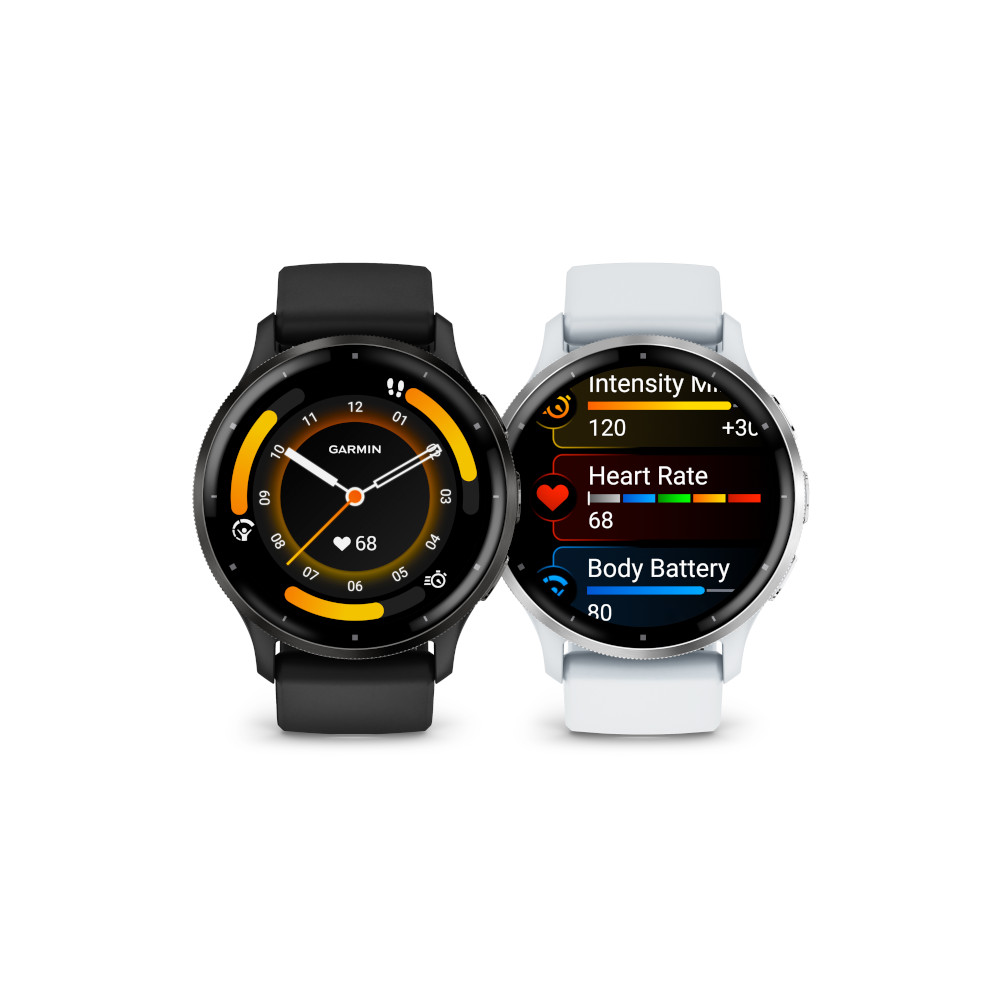
Garmin Venu 3
Highly accurate GPS and heart rate sensors Automatic nap detection and sleep coaching Up to 14-day battery life
Accuracy and smarts.
The Garmin Venu 3 and Venu 3S focus on providing personalized data about your health and wellness with some of Garmin's most advanced body tracking features. The Body Battery function informs you of your activity levels, and new sleep tracking includes nap detection.
Finally, the Garmin Venu 3 is worth a mention for those particularly interested in monitoring their energy reserves during the day and their recovery overnight. Garmins latest smartwatch packs the nifty Body Battery feature that combines heart rate variability, stress, and activity data to calculate the users energy reserves. A number between 1 and 100 is generated, with 100 being the maximum energy. Its an excellent and surprisingly accurate measurement of energy levels.
It also brings new features to the series, from Nap detection for improved all-round sleep monitoring and Daily Summary, which provides an overview of your health each night. Morning Report is still available for you in the morning.
While the Garmin Venu 3 lacks the ECG features of the Garmin Venu 2 Plus ($449 at Amazon), I still think its Garmins best smartwatch. Nevertheless, if you can find the latter at a good price, itll also be an excellent energy monitoring companion.
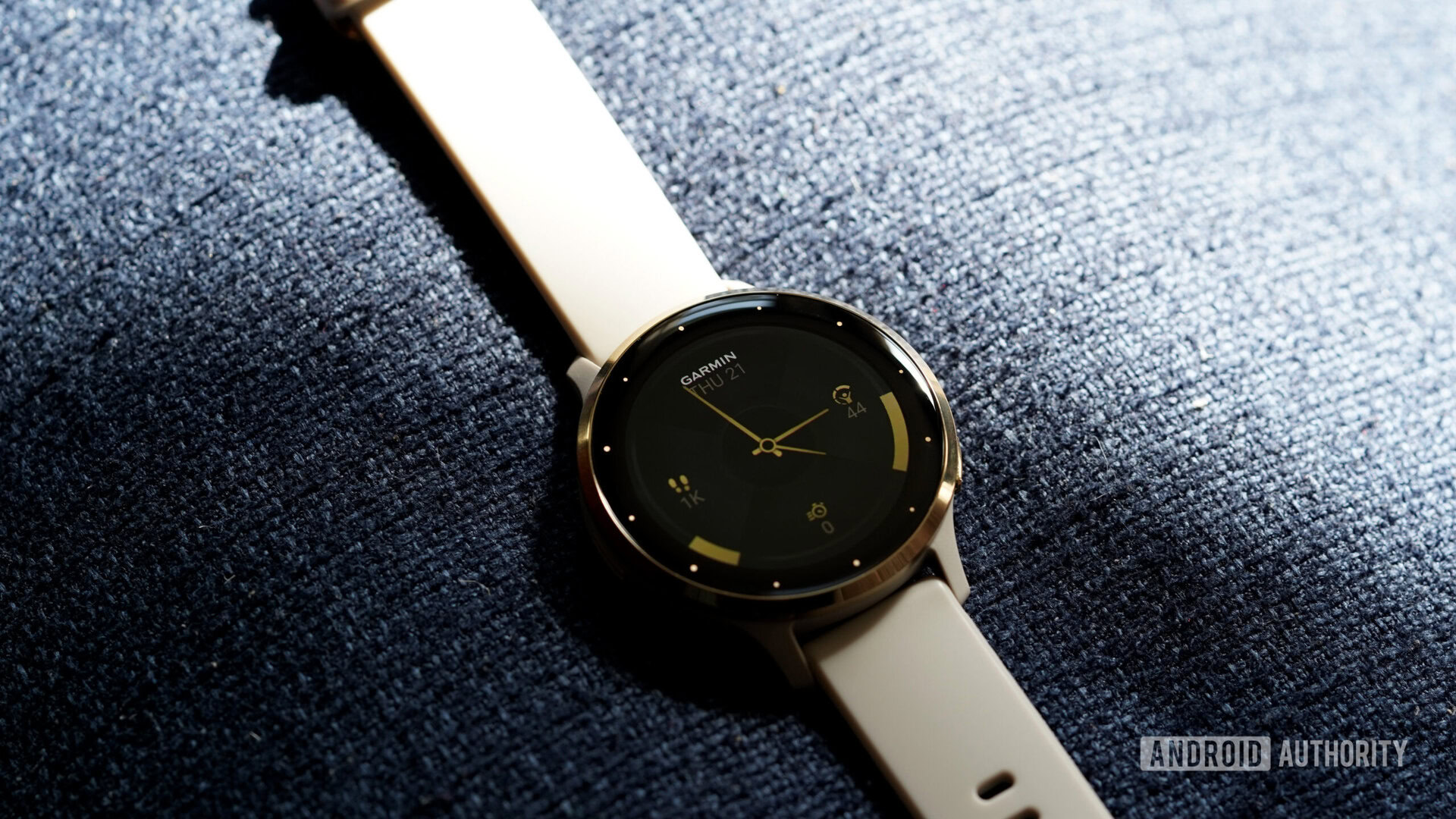
Kaitlyn Cimino / Android Authority
Pros
- Highly accurate GPS and heart rate sensors
- Automatic nap detection and sleep coaching
- On-device phone call and voice assistant support
- Up to 14-day battery life
- Larger display
Cons
- No ECG app
- Pricey compared to competitors
- No LTE model
Honorable mentions
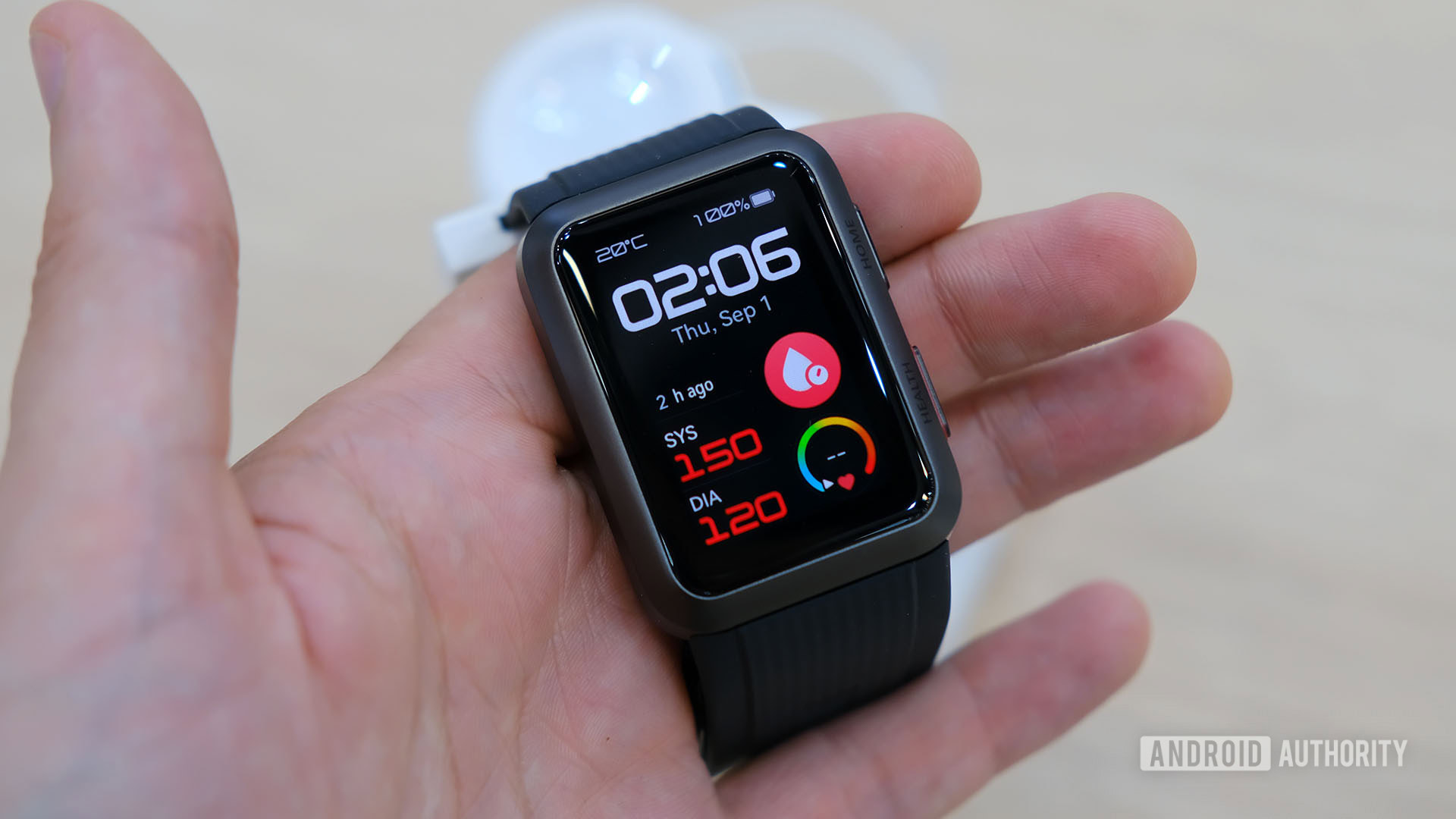
Robert Triggs / Android Authority
If youre looking for more recommendations, find our list of honorable mentions below.
- Fitbit Versa 3 ($158 at Amazon): If you dont need the Sense 2s cEDA sensor, the Versa 3 is a solid all-round tracker that should appease most buyers.
- HUAWEI Watch D ($132 at Huawei): Few smartwatches can claim to measure blood pressure without a third-party cuff, but the HUAWEI Watch D does just that.
- Samsung Galaxy Watch 4 ($279.99 at Samsung): At the right price, the Galaxy Watch 4 is an excellent Galaxy Watch 6 alternative, packing the same body composition and blood pressure features as its successor.
- Apple Watch Series 8 ($329 at Amazon): If you need an Apple Watch with a working blood oxygen sensor and cant find a used Series 9, the older Series 8 is your best bet.
FAQs
Unfortunately, no. No big brand smartwatch can monitor blood sugar levels just yet.
Smartwatches are not medical devices and, therefore, should not be used for diagnosis. However, their data could be valuable for spotting potential problems. If youre feeling unwell, contact a doctor.

